- Home
- Peter Lerangis
Fire the Depths Page 4
Fire the Depths Read online
Page 4
Then why did it seem like Verne was waiting for an answer?
Max gulped. He thought about all the roller-coaster changes over the last few hours. In the life of Max Tilt, impossible was the new possible. He had heard Verne speak, and he was too afraid to say no. Or whatever no was in French.
“Voilà,” he whispered in reply. “It’s the only French word I know, sir.”
“Come in, it’s beautiful!” Alex called out.
Maybe it was the slight shock of Alex’s voice breaking the silence. Maybe Max was just rattled. But he could have sworn that the beard on the old man’s face moved, as the lips underneath curved upward into a tiny smile.
Max turned away and caught his breath. Swallowing hard, he stepped through the door.
He gazed around, taking in a room that seemed to be about six feet by eight feet. On the long side to the left, the attic ceiling slanted downward. But Max’s eyes were drawn to the artwork on the walls—a vibrant, colorful mural that wrapped around the entire room. At the far left, where the ceiling was lowest, a giant squid seemed to be emerging from beneath an inky sea. As he looked around clockwise, he saw a submarine approaching the squid. A bearded man was staring at it from inside the sub, through a porthole. Above the sea, a massive balloon hovered among the fluffy clouds, and to their right a stiff-looking guy in nineteenth-century clothes was riding on a fancy sidecar attached to an elephant, while a befuddled, round man was lying flat on the animal’s back, trying not to fall off. Behind Max, a team of explorers burrowed under the ground, toward a civilization of people who looked like rodents.
Alex was right, it was beautiful. Crazy beautiful. Or maybe just crazy. Max couldn’t decide. It was like a fantasy-novel artist was let loose with paints and no rules. Max tried to appreciate it. But there was also something in the middle of the room that took most of his attention—a huge wooden chest.
“Pinch me, I’m dreaming . . .” Alex said, her jaw hanging open.
Max pinched her.
“Ow! It’s an expression,” she said, jumping away. “These paintings . . . they’re amazing.”
“The word I was thinking was wack,” Max said, heading toward the chest.
Alex shook her head. “These are scenes from Jules Verne stories, Max. This is like a shrine!”
“Or maybe a crypt.” Max’s knees began to shake. The wooden chest was creepy. It reminded him of a sarcophagus he’d seen in a museum in New York. “What if someone’s in here—you know, like in the pyramids? They would bury the Pharaohs in these death rooms, with paintings and jewels and stuff, to make them feel at home when their dead spirits rose? I can draw you a cross-section of the pyramid paths, if you want. Like now. So we don’t have to spend another minute in this room.”
Alex ignored him, moving toward the chest. It was a little more than knee-high, but it looked like it could survive a nuclear blast, with bands of thick metal surrounding it, and a massive padlock on a hasp. “We have to find the key and open it,” Alex said, shining her light around the small room.
Max summoned up all the courage he had. Standing over the chest, he gripped the padlock and swung it out to examine the words stenciled into it. “It’s in code,” he said.
“It’s in French,” Alex replied.
“How do you know?”
“I’m from Quebec. I’m fluent in English and French. I’ve read all Verne’s books in their original versions. They’re much better that way.”
Max nodded. “All I know is voilà.”
Alex looked carefully around the room. “I don’t see a key, do you?”
Max shook his head no. “Maybe we could just sell the trunk, locked,” Max said. “Like a mystery package—one hundred dollars for an ancient chest and anything you can find within it!”
“What if there’s a treasure inside?” Alex offered.
“What if there’s a body inside?” Max replied.
“Jules Verne was not a murderer,” Alex said. “He was a very rich author. If he left money or gold, it would be ours, Max. Our problems might be solved.”
Max pulled the padlock down as hard as he could, once, twice, three times . . .
“That’ll never work,” Alex said with a chuckle.
With a hollow-sounding clack, it fell open. “Whoa . . .” Max gasped.
Alex’s eyes widened. “Guess I lied.”
“It rusted out, that’s all. We are in luck!” Max yanked up on the leather handle, but it ripped clear off the chest.
“Some luck,” Alex said. “Now it’s totally stuck shut.”
“Think positive,” Max said. He backed out of the room and went into the main part of the attic. In the dim light of the hanging lantern, he grabbed the old crowbar from the floor. Quickly he ran back into the hidden room and thrust the bar into the gap between the lid and the rest of the trunk. “Help me out.”
Alex was at his side instantly, and they both pulled. The top juddered upward. Dropping the bar, Alex and Max grabbed the metal edge and lifted.
The lid let out a deep, cranky noise as it opened.
Alex and Max gazed inside at a thick muslin sheet covering a bulge underneath. “Let it be gold pieces . . .” Alex chanted under her breath. “Let it be gold pieces . . .”
She gripped the sheet and pulled upward.
Max screamed. His legs sprang back as if they had a life of their own. He hurtled through the door and landed on his rear in the attic.
He didn’t care what Jules Verne thought. He didn’t care if they were thrown out of the house tonight. He could never unsee what was in there.
He had joked about finding a body.
He hadn’t expected to see one in there.
7
ALEX held on to Max’s arm as tightly as she could. The whole attic smelled like a rotten, stinking fish market.
“Let go of me!” Max shouted. “I was right. There’s a person in there—”
“Dude, stop this!” Alex said. “It’s not a person, it’s a skeleton.”
“It was a person!” Max snapped. “How do we know it’s not Jules Verne? Someone murdered him, hid him in a chest, and now here we are! We’ll be arrested!”
Alex turned him around and sat on him. “You will not move until we talk. Jules Verne is buried in a cemetery in France. Think about it, Max—your parents have collected stuffed squirrels and glass eyeballs in here. It doesn’t mean they killed the squirrel or poked someone’s eye out. My biology teacher had a skeleton in the classroom and no one arrested him for murder. Stop thinking ‘yuck’ and start thinking ‘ka-ching.’ Some medical school might want to buy it.”
“But why is it here? In our attic in the middle of Ohio?”
Alex thought for a moment. “It might be a warning. Like a skull and crossbones on a jar of poison. I don’t know—to keep us from something underneath.”
“So what’s underneath?” Max asked.
Now Alex was yanking him back into the room, shining the flashlight into the chest. Into the hollow eyes of the skull.
“I think I’m going to be sick,” Max said.
Alex let go of Max’s hand and pulled the skull out of the chest. It was bright white, with a seam running up the middle of the forehead. She held it there for a long moment, examining it with a serious expression.
Then she set it on the floor and pounded the forehead with the butt of her flashlight. The skull collapsed, the center pulverized into a pile of dust.
“It’s fake. Plaster of Paris.” Alex reached in and pulled out a collarbone, arm bones, a rib cage. “Which means it is a scare tactic. There’s got to be something else in here, Max.”
Max took a deep breath. He shook away the last dregs of his fear and began pulling out bones too. They felt fake. They weren’t even scary. But as he grabbed the last group of foot bones, his fingers brushed the bottom of the chest.
A flat, empty, wooden bottom. The chest was completely empty.
“Nada.” Max sat back with a deflated sigh.
“Sorry, M
ax,” Alex said. “But all’s not lost. We’ll get something for the antique chest. Come on, let’s bring it out and do a final inventory with the rest of the stuff.”
As Max gripped the edge of the chest, he paused to look at the murals. The submarine, the balloon, the tunnel . . . they were growing on him. Everything else in the attic was so dark and weird, but these had a sense of adventure and energy. He was glad Alex hadn’t suggested somehow trying to sell them.
He looked back out into the attic. The painting of Verne still seemed to be smiling.
“Someday, sir,” Max whispered, “I’ll tell you about Vulturon.”
“What?” Alex said.
“Nothing,” Max replied.
He knew it couldn’t possibly be true, but the guy seemed to wink at him.
It was almost midnight when Max heard a rustling at the front door. He and Alex had found candles in the pantry and arranged them in a circle in the living room. There, Alex had spent the past few hours listing objects on craigslist and eBay while Max worked on Vulturon.
Alex sighed. “I’m figuring we’ll need about five thousand but we’re not even close—”
“Shh!” Max said quietly. “Did you hear that?”
“Hear what?” Alex looked up. For a moment nothing happened, and then they both saw it—a movement of shadows under the door. “Someone’s there,” Alex whispered.
“Maybe the police are coming to kick us out,” Max said. “We’re too late to raise money.”
“At midnight?” Alex whispered. “I don’t think it’s police. Or anybody else that’s good.”
Max grabbed a baseball bat from a corner of the room. Alex tiptoed over the squishy carpet to the front door and placed her hand on the knob.
A sudden sharp rapping at the door made them both stiffen. Max raised the baseball bat as Alex pulled the door open.
A small figure in a baseball cap let out a choked squeal and jumped back. “Whoa. What is going on here?”
Max dropped the bat. “Smriti?”
“You scared us,” Alex said. “It’s late.”
“Your doorbell isn’t working. I pressed and pressed . . .” Smriti said, walking inside. “I couldn’t sleep. I was worried about you. Then I looked out my window and saw the flickering lights.”
“We lost our electricity,” Max said. “It’s a long story.”
As Smriti sat on the carpet, Alex returned to the listings. Max carefully gave Smriti all the details of what had happened. She listened closely, her eyes moistening at the bad news. “Why don’t you come live with us?”
“You have two sisters and a baby brother,” Max said.
“There’s always room somewhere,” Smriti said.
Alex nodded, looking up from the screen. “That’s really nice of you, but I don’t want to wake up your whole family. We’ll stay here tonight and see if we can get the lights back on tomorrow. We do need to stick around and sell this stuff.”
“If we lose our house and have to move in,” Max said, “can I have my own desk?”
Smriti smiled. But before she could answer, Alex jumped back from the laptop. “Hit. Me. Over. The head. Someone’s asking about buying the chest!”
“What?” Max said, looking over her shoulder.
“At midnight?” Smriti added.
Alex leaped up and hugged them both. “We’re going to do this, cuz! No stopping us now!”
8
NIEMAND stared at the message on the screen—the translation of the document he’d bought from the fat man.
1 kilo flour . . . 1 bunch red grapes . . . rack of lamb . . .
It was a shopping list.
A blasted shopping list! All that effort at the warehouse for a piece of utterly worthless junk.
Sophia had translated it in seconds. Niemand could practically feel her mocking laughter over the email message. He sipped from a double shot of espresso in a black cup and nearly choked. Slamming the cup down, he said, “Heat this up for me, Rudolph. I want it scalding.”
A man dressed in black took the cup. He had wispy brownish hair and shoulders the size of a desk. “Any good news?” he asked, lumbering toward the microwave.
Niemand swept the laptop off the table, and it crashed onto the floor.
“Guess not,” Rudolph said.
As the espresso heated, Rudolph walked across the carpeted office. All windows were frosted to prevent snooping, and the front door was emblazoned Private: Authorized Personnel Only. Rudolph liked being authorized. Mr. Niemand was the only person who had ever given him that honor. Special Envoy to the President and Founder of Niemand Enterprises was a long way from Cell Block 11, Prisoner 9.
On the opposite wall was a countertop with all kinds of electronic equipment, along with a stainless-steel supply cupboard. Rudolph opened the left-hand door, took a fresh laptop from the top of a tall stack, and brought it to his boss. “Hey, cheer up,” he said. “We got reports from Iceland that a big, fat greenberg fell into the sea.”
Niemand turned to him slowly. His eyes seemed to jump out of their sockets and stab his face. The stub where his left pinkie used to be was bright red, which was always the sign of a bad mood. “Greenland . . . and iceberg, you nincompoop!”
“Sorry, Mr. Niemand.” Rudolph hated when his boss got like this. It made him so nervous, he always said the wrong thing. As he opened the laptop and placed it on the desk, he spotted an alert at the top of the screen.
NEW ITEM: #4215, 19th-century chest belonging to famed author JULES VERNE. Starting price, $250
“Did you see this, Mr. N?” Rudolph asked. “On craigslist?”
But Niemand was ignoring him, checking his phone.
The microwave let out a ding. As Rudolph turned toward it, Niemand slammed down his phone and let out a small barrage of curses. “More disgraceful news. It’s the lab. They’re telling me the SWATO tanks have a structural flaw and won’t be ready for weeks.”
“SWATO?” Rudolph said.
“Seawater-to-Oxygen!” Niemand snapped. “Great waves of Neptune, am I paying you to forget your training?”
“Here you go, boss,” Rudolph said, carrying the coffee cup with a hot mitt and trying to sound upbeat. He smiled, which for him was a lopsided grimace that looked like he was being stabbed. “Hot enough to burn steel, just the way you like it.”
As he set it down, Niemand smacked the cup angrily with his left hand, sending the liquid into Rudolph’s face.
The big man yowled, but Niemand’s eyes were fixed on the alert at the top of his laptop. His pulse quickened as he clicked on it. Quickly he sent an inquiry to the seller. To his surprise the seller responded instantly.
With an address.
Niemand leaped from his seat. “Rudolph, we’ve done it!” he shouted.
But his henchman was squirming in pain on the workshop floor. With an exasperated sigh, Niemand picked up his phone. “Medical? Would you bandage up Rudolph, relieve his pain, and get him ready to leave, stat?”
“Th-Th-Thanks,” Rudolph said, his hands covering his burned face.
“Only the best for my people,” Niemand said. “Make it quick. We leave in half an hour.”
9
THE phone woke Max up Saturday morning at 6:09. Half asleep, he grabbed it off his night table. “Heechhhurrr . . .”
“I’ll take that as a hello,” said his father’s voice on the other end.
“Dad!” Max sat up instantly in bed. “How’s Mom doing?”
“Fine!” his father replied cheerily.
“Can I talk to her?” Max asked.
“She’s sleeping. But . . . later maybe. I was calling to ask how you were. Things are working out with Alex?”
“Ahhhh, crrrap!” came Alex’s voice from downstairs. “I hate this!”
“Excuse me?” Dad said.
“She’s great!” Max quickly shot back. “Fun. And smart. And she’s going to be a famous writer someday. Like Jules Verne.”
“Glad you get along,” Dad said, “becaus
e we may be here a little while longer than we’d hoped.”
Max felt his stomach sinking. “How much longer?”
“It’s unclear,” his dad said with a sigh.
“Wait. That sounds really bad, Dad.”
His brain was screaming at him to urge his dad to come home now, no matter what else was going on. We’re going to be kicked out of our house! Come home now, and fix everything! But he couldn’t. Or at least he wouldn’t. Not with Mom so sick.
Max held the words back. He knew Alex was on her phone now with the electric company. She’d made him promise he’d give their plan some time to work. He had to have faith. Mom’s condition had deteriorated, and stress would only make it get worse. Sometimes the truth had to be . . . delayed.
“You know your mom, she’s a fighter,” Dad said.
“Right,” Max said, nodding, as if his dad could see him.
“Once Mom and I get back, we’re going to have to deal with this hospital bill. And a lot of other bills, I imagine. I can’t even imagine how much the treatment will cost and how we’ll pay for it. But hey, you know the Tilt family motto—”
“Live large, because there are no extra days,” Max recited.
“Attaboy,” his dad said. “Keep those flames burning for your mother. And say hi to Alex for us.”
“You bet, Dad. Love you.”
When his dad responded, his voice was soft and crackly. “Love you too, buddy boy.”
Max listened to the phone go silent, then hit the Off icon. He had two bars of power left and no electricity in the room. As he glanced around, his eyes landed on his old desktop. And his plastic-coated ten-pound dumbbells. And his basketball and football that he’d hardly ever used. All of them could be sold for money. He had to think of the whole world that way now. Except maybe his flying dinos and rainbow banner.
He exhaled sharply and jumped out of bed. In minutes he was washed, dressed, and running downstairs.
“Sleeping Beauty rises,” said Alex in the kitchen. She was wearing a jacket and hunched over her laptop. Next to her was a napkin with the remains of a mostly eaten blueberry muffin.

 The Orphan
The Orphan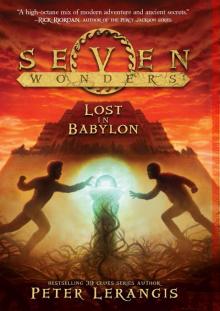 Lost in Babylon
Lost in Babylon Last Stop
Last Stop Antarctica Escape from Disaster
Antarctica Escape from Disaster Rewind
Rewind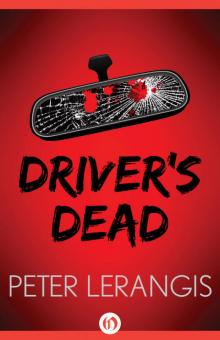 Driver's Dead
Driver's Dead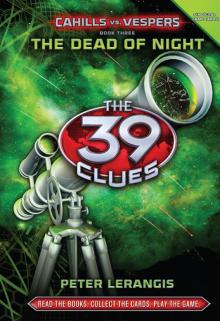 The Dead of Night
The Dead of Night The Promise
The Promise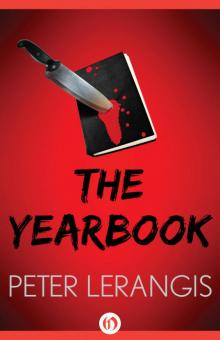 The Yearbook
The Yearbook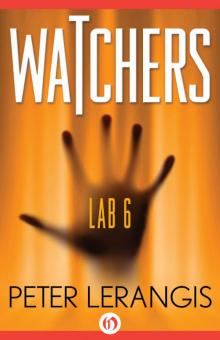 Lab 6
Lab 6 The Tomb of Shadows
The Tomb of Shadows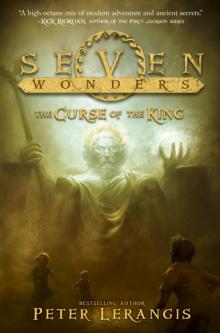 The Curse of the King
The Curse of the King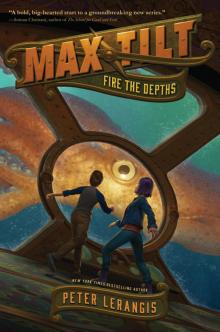 Max Tilt: Fire the Depths
Max Tilt: Fire the Depths The Fall Musical
The Fall Musical The Chaos Loop
The Chaos Loop Island
Island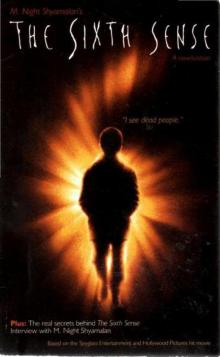 The Sixth Sense
The Sixth Sense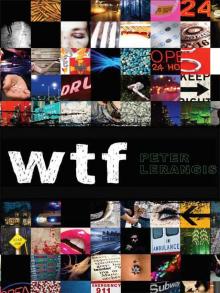 Wtf
Wtf War
War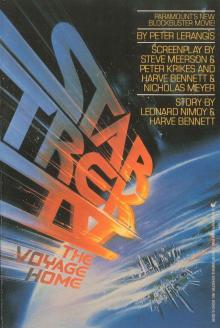 Star Trek IV, the Voyage Home
Star Trek IV, the Voyage Home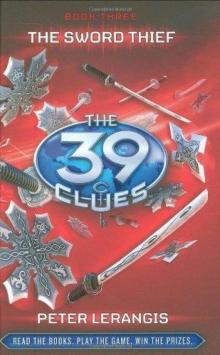 The Sword Thief
The Sword Thief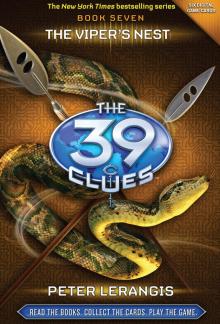 The Viper's Nest
The Viper's Nest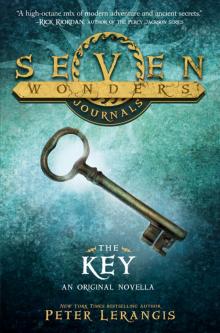 The Select
The Select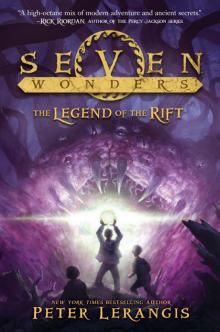 The Legend of the Rift
The Legend of the Rift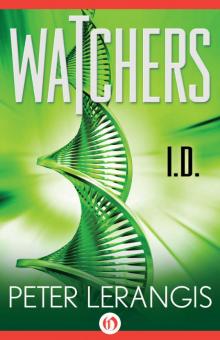 I.D.
I.D. The Sword Thief - 39 Clues 03
The Sword Thief - 39 Clues 03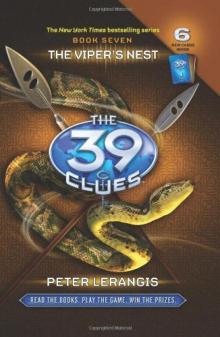 The 39 Clues Book 7: The Viper's Nest
The 39 Clues Book 7: The Viper's Nest Antarctica
Antarctica Seven Wonders Journals: The Select
Seven Wonders Journals: The Select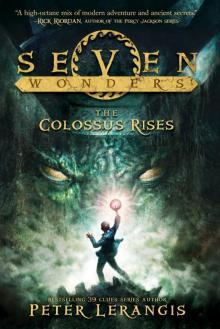 Seven Wonders Book 1: The Colossus Rises
Seven Wonders Book 1: The Colossus Rises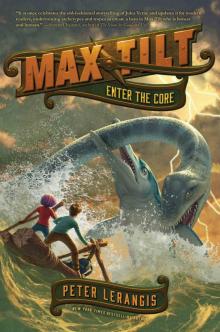 Enter the Core
Enter the Core![39 Clues _ Cahills vs. Vespers [03] The Dead of Night Read online](http://i1.bookreadfree.com/i1/04/02/39_clues_cahills_vs_vespers_03_the_dead_of_night_preview.jpg) 39 Clues _ Cahills vs. Vespers [03] The Dead of Night
39 Clues _ Cahills vs. Vespers [03] The Dead of Night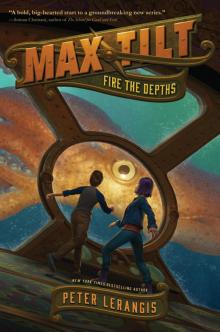 Fire the Depths
Fire the Depths 80 Days or Die
80 Days or Die Seven Wonders Book 3
Seven Wonders Book 3